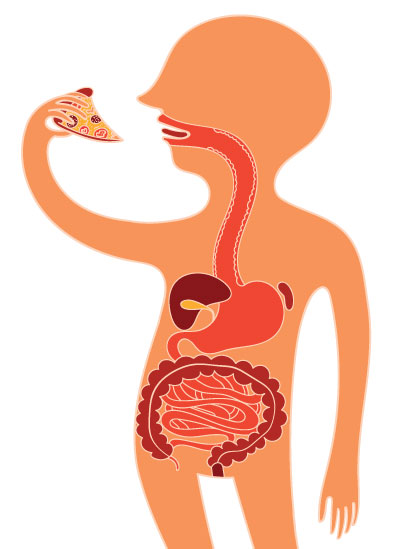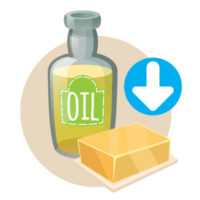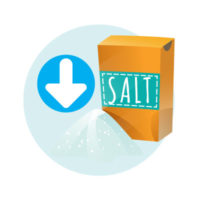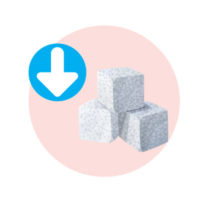A healthy gut is critical to overall health and an unhealthy gut can contribute to a wide range of diseases or disorders such as irritable bowel syndrome, Crohn’s disease, and irritable bowel syndrome. Deterioration in gut health has also been associated with increased risk of non-communicable diseases (e.g. obesity, diabetes, cancer).
Components of the Digestive System
The digestive system is made up of the gastrointestinal (GI) tract, the liver, pancreas, and gallbladder. The hollow organs that make up the GI tract include the mouth, oesophagus, stomach, small intestine, large intestine, rectum and anus.
Bacteria in the GI tract (aka gut flora or microbiome) are also considered integral components of the system because they assist with digestion and other functions of the gut. From chewing to bowel emptying, all these different components work together to complete the elaborate task of digesting foods (solid or liquids) that we consume each day.
Too Much of One Thing
The digestive system is the first thing that comes into contact with the foods we eat. The digestive system converts the foods we eat into their simplest forms. Though the components of the system are tough and resilient, years of abuse and bad lifestyle habits can take its toll.
Fat & Oil, Spoils
The more high-fat food you eat, the more bile and lipase your body needs to digest them. If you eat too much, you may overwhelm the capacity of your liver as well as pancreas to synthesize sufficient bile and lipase to help digest the fat. If the liver and pancreas cannot keep up, this causes indigestion. Overworking the liver and pancreas over time can also cause it to malfunction that can lead to fatty liver disease, insulin resistance and diabetes.
Salt to Taste
Salt or sodium chloride, is essential for maintaining fluid balance within your cells, for contracting your muscles and transmitting nerve impulses. Your body also needs salt to maintain the proper stomach acidic level (pH) and also produce the hydrochloric acid. Salt also plays a critical role in helping your digestive system absorb nutrients. Eating too much however, can increase the risk of gastric ulcer, stomach cancer and high blood pressure. Too little, and you will not able to produce enough acid to breakdown and absorption of foods which then causes indigestion.
You’re My Sugar
As part of the digestive system, our pancreas releases insulin to maintain healthy blood sugar balance. However, too much sugar causes it to either release too much insulin or not enough. This can lead to either hypoglycaemia (low blood sugar) or hyperglycaemia (high blood sugar). The liver also uses the sugar fructose also called as fruit sugar, to make fat. Too much refined sugar and high-fructose corn syrup causes a fatty build-up that can lead to liver disease. Bad gut bacteria also use sugar as food to multiply their colony and causes tummy problems.
Messing Up Gut Microbiome
Bacteria in our gut helps to fight off pathogenic invaders, digesting certain nutrients and drugs, creating important nutrients, maintaining the integrity of our gut and are associated with the smooth functioning of our immune system. A disruption in the normal gut microbiome puts our gut health at risk by exposing it to infection and harmful invaders. The imbalance of gut microbiome is caused by poor dietary habits, unhealthy environment (pollution), improper use of antibiotics, etc.
Besides the food you consume, eating habits can also affect your gut health. As parents, practice these good dietary habits and educate your kids about the gut and food from the beginning:
- Chew food properly before swallowing and do not eat too fast. Eating too fast can cause indigestion.
- Do not skip meals; skipping meals increases your tendency to overeat at the next while eating regular meals each day helps digestion.
- Do not overeat or resort to eating as a therapy for emotional distress. Overeating can lead to indigestion, heartburn and acid reflux.
- Go easy with the snacking and choose healthier snacking options (e.g. fruits, nuts).
- Avoid eating late at night, close to your bedtime. When you lie down for bed too soon after eating you can get heartburn and acid reflux. Then this will disturb the sleeping hours.
- Eat more fibre-rich foods and food that contains prebiotics to encourage growth of good gut bacteria and improve bowel movement. You can also consume probiotics, which replenish the gut with certain beneficial bacteria from sources such as tempeh, kimchi, yoghurt, and cultured-milk drinks.
Strike A Balance
Eating too much of any one food is not ideal because no one type of food has all the nutrients to maintain your gut and overall body health. In principle, you should eat a balanced meal that is moderately portioned and has a variety of foods from each food group as suggested in the Malaysian Food Pyramid. You and your family can achieve better gut health by being mindful of what you eat and practising a healthier lifestyle together.
An educational collaboration with Nutrition Society of Malaysia.











Comments